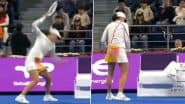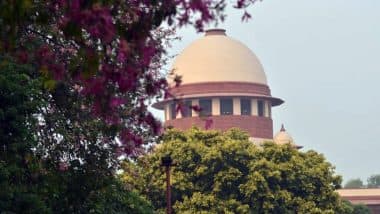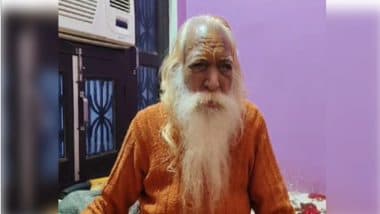Tokyo, Jan 21 (AFP) Uncertainty over Russia's participation for the third consecutive Olympics and concerns over the heat hang heavy over Tokyo 2020 preparations, with only six months until the opening ceremony.
The Japanese capital has avoided many of the crises that dogged previous Games -- International Olympic Committee (IOC) chief Thomas Bach said the city is the best prepared host city he has seen, with facilities complete well ahead of schedule and tickets massively oversubscribed.
But elements largely out of organisers' control have overshadowed the run-up to the 2020 Games, the second time they will have been held in Tokyo after 1964, when a post-war Japan wowed the world with its technological prowess and economic "miracle".
Chief among these is whether Russian athletes will compete after the World Anti-Doping Agency (WADA) imposed a four-year ban from international sporting events over what it views as a state-sponsored doping scheme.
Moscow has appealed to the Court of Arbitration for Sport (CAS), but sources have told AFP a decision is not expected before May, just weeks before the Games open on July 24.
Bach has urged CAS, the world's highest sports court, to give a decision that "does not leave room for any kind of interpretation", warning of "real, total confusion" if the ruling is not watertight.
Russia's up-in-the-air participation follows confusion at the Rio Games, where the IOC allowed individual federations to decide whether to permit athletes to compete. At the 2018 Winter Olympics in Pyeongchang, the IOC barred the Russian Olympic Committee but allowed clean Russian athletes to take part as neutral competitors.
- 'Decision without agreement' -
================================
Even less predictable than Russian participation is the Tokyo weather, which has resulted in the unprecedented moving of the marathon from the host city over safety concerns.
In 1964, the Games were held in October to avoid the hot and humid Tokyo summer where the temperatures can exceed 40 Celsius (104 Fahrenheit).
But athletes in 2020 will have no such respite, with some doctors warning there could be deadly emergencies, and concerns have been raised for volunteers, spectators and the competitors.
Test events last summer gave organisers a taste of what could be to come. A French triathlete was hospitalised with suspected heatstroke and several spectators were taken ill at a rowing event.
Tokyo 2020 has rolled out a series of measures designed to counter the heat, including artificial snow, cooling mist sprays, paper fans and towels to cool the neck.
Events have been brought forward earlier to avoid the burning afternoon sun but the most extraordinary change was shifting the marathon and race walk 800 kilometres (500 miles) north to Sapporo on the island of Hokkaido.
The move, which apparently caught Tokyo officials off guard when it was announced by the IOC, sparked fury in the capital, with city mayor Yuriko Koike describing it as "a decision without an agreement".
Kazunori Asaba -- training chief of the Japan Association of Athletics Federations -- went further. "It's like the athletes who had been training for many years to climb Everest were told just nine months before they would go to a different mountain," he said.
- 'We're not complacent' -
==========================
Tokyo officials are also carrying out drills in case of natural disaster in one of the world's most active seismic regions, which also gets battered by several typhoons each year.
Last year's Rugby World Cup was affected by the huge Typhoon Hagibis, which forced the cancellation of three matches.
With six months to go, excitement is building and nearly 60,000 fans packed out the new National Stadium for its opening to see three-time 100m sprint gold medallist Usain Bolt trot around the track.
Olympic Minister Seiko Hashimoto, who represented Japan at seven Olympic Games as a speed skater and cyclist, said the country would stop at nothing to pull off a spectacular show.
"Last week I was in Lausanne, where President Bach again complimented our preparations. But we're not complacent. We will do everything possible, I will do my best as a minister, to make the Games a success," she told reporters. AFP
(This is an unedited and auto-generated story from Syndicated News feed, LatestLY Staff may not have modified or edited the content body)













 Quickly
Quickly






















